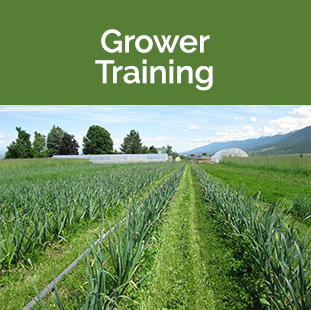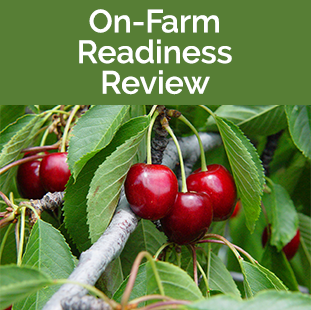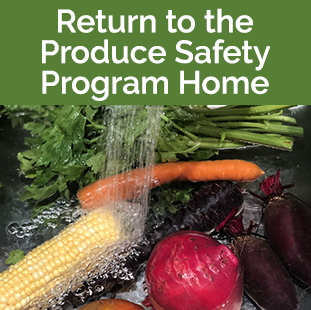Welcome to the Produce Safety Education and Outreach Page
The Montana Department of Agriculture offers several educational opportunities for growers to learn more about produce safety. To learn more about the Produce Safety Grower Training course we offer, click the Grower Training tile at the bottom of this page.
Produce Safety Rule: Key Elements
Employee Qualifications and Training
Farm workers who handle produce and/or food contact surfaces must have certain training, including the importance of health and hygiene.
Worker Health and Hygiene
Workers can carry, introduce and spread contamination to fresh produce so it's critical to have training in place for employees and visitors. Farms must also implement worker practices such as washing hands after using the restroom and notifying their supervisor when they are ill.
- How to Build a Portable hand-washing Station
- Build a low-cost hand washing station
- Handwashing technique video - University of Minnesota Extension
Biological Soil Amendments
Appropriate use of raw manure and compost minimizes the risk of contamination.
Domesticated and Wild Animals
Produce growing areas must be visually monitored for signs of animal intrusion and workers must not harvest produce that is likely contaminated (e.g. don't harvest melons with bird poop on them). Farms are not required to exclude animals from their fields or destroy animal habitat.
- Co-management of food safety and conservation - Wild Farm Alliance
Equipment, Tools and Buildings
The Produce Safety Rule establishes standards related to the use and sanitation of equipment, tools and buildings to prevent contaminating produce.
Recordkeeping
Certain records are required by the Produce Safety Rule. In general, records should be accurate, legible, and indelible; dated and signed by the person who performed the activity; and should be created at the time of the activity. Records should be keep for at least two years.
- Records Required by the FSMA Produce Safety Rule - Produce Safety Alliance
- Recordkeeping Guide - Print version
- Recordkeeping Guide - Fillable
Sprouts
Sprouts have specific requirements because of their susceptibility to contamination. Contact the Sprout Safety Alliance if you are a sprout grower.
Produce Safety Alliance
The Produce Safety Alliance (PSA) is a collaborative project between the US Department of Agriculture, the Food and Drug Administration and Cornell University. Visit their main page to find additional produce safety resources or sign up for their free newsletter. You can also find them on Facebook.
Resources
The PSA is continually adding resources and materials to their website. Below are just a few topics you can find.
- Agricultural water calculation tools
- Exemption and exclusion presentation
- Farm food safety plan writing resources (you are not required to have a safety plan for your farm, but it is recommended)
- The Produce Safety Alliance has a comprehensive list of farm food safety plan writing resources with links to templates.
To learn more about grower training courses offered in Montana, click on the “Grower Training” tile below.



